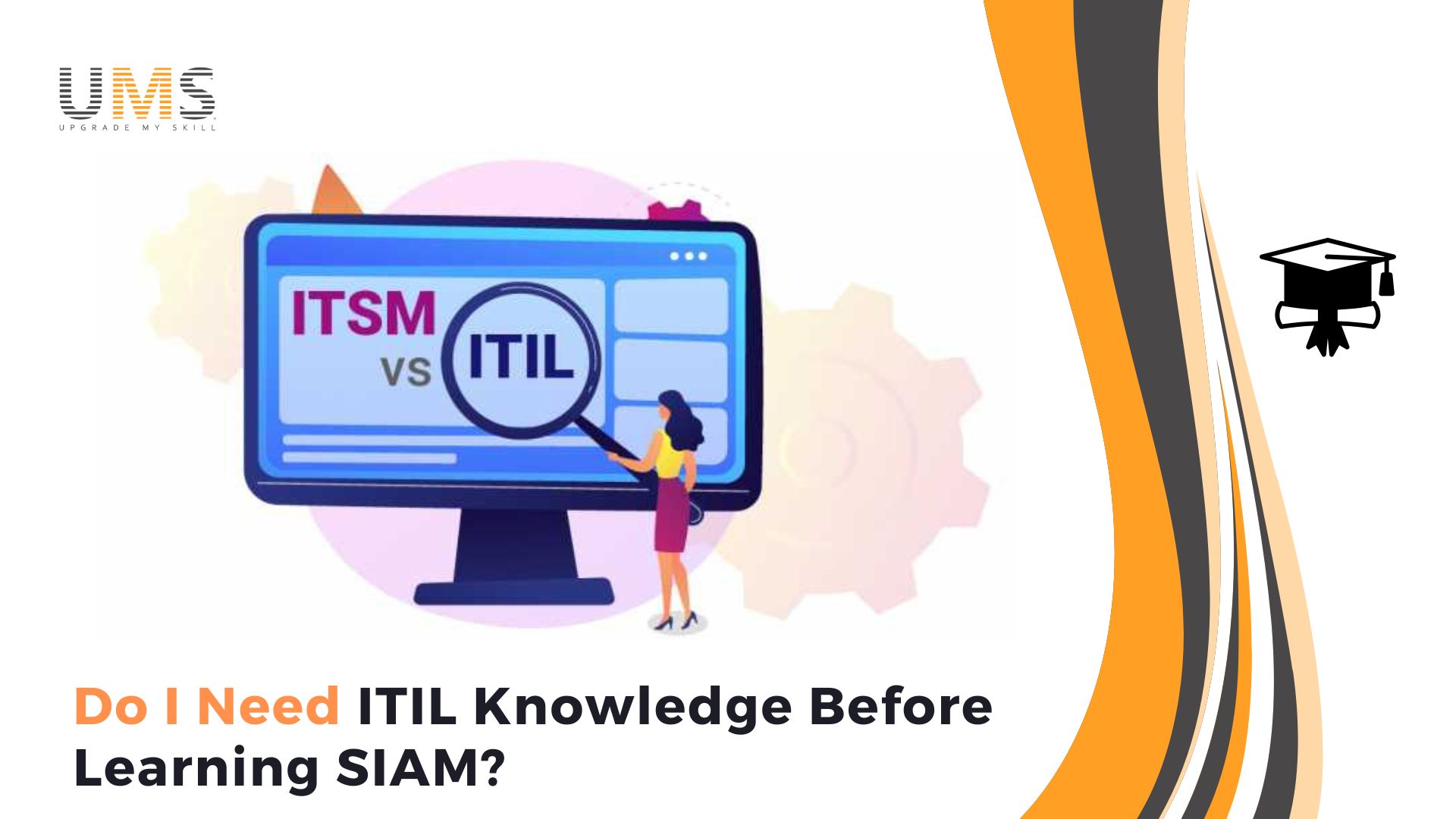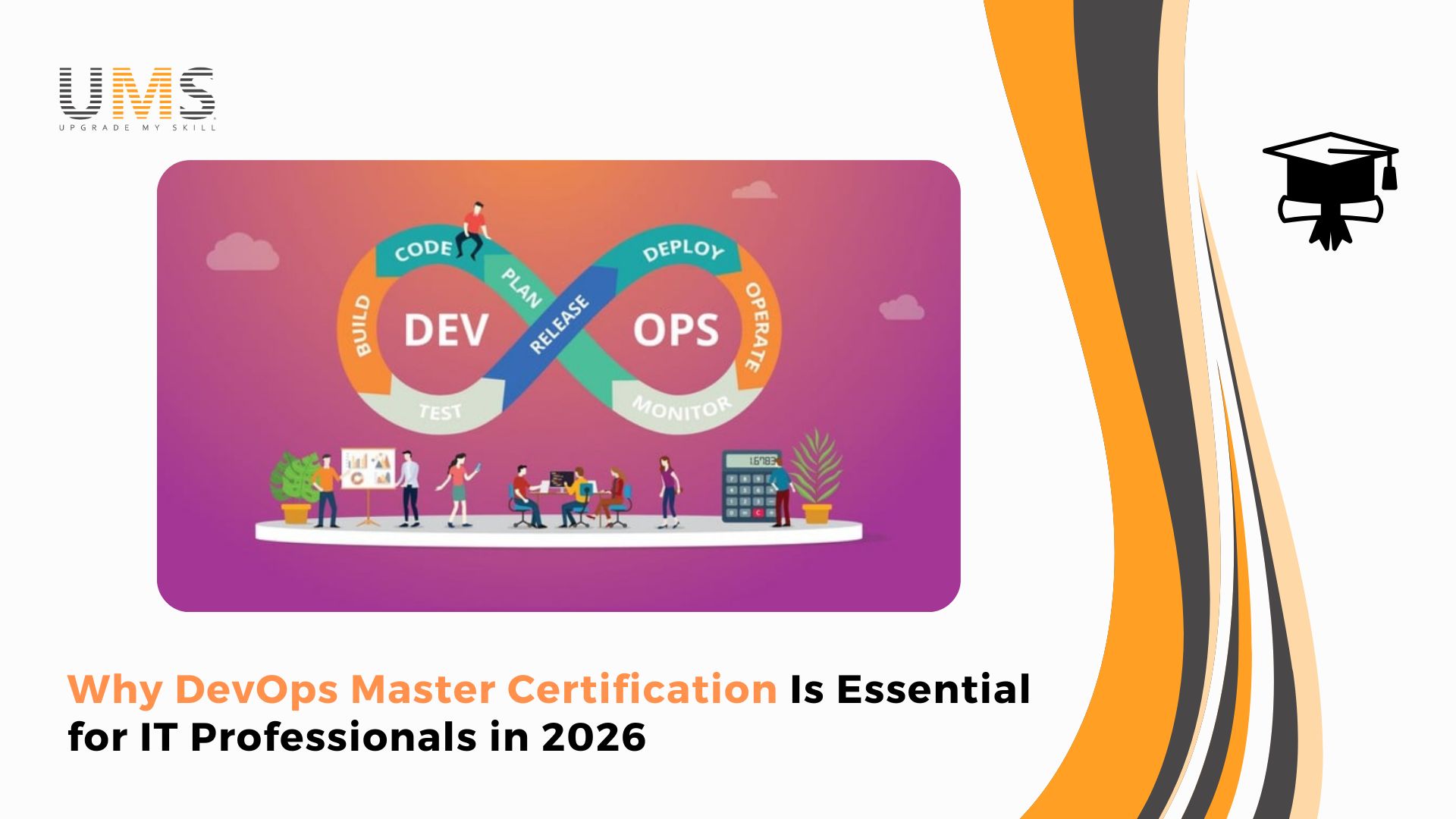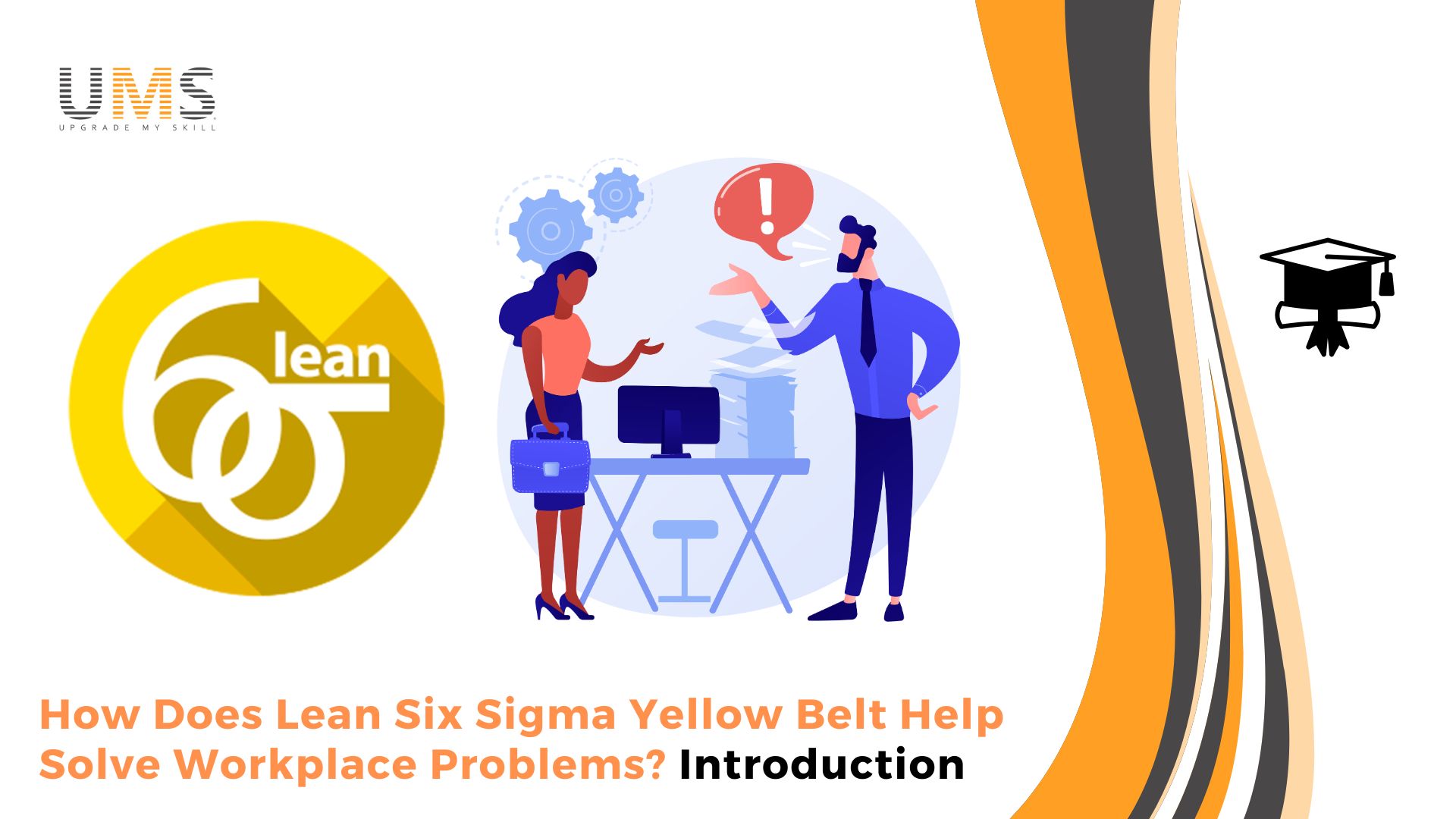- Posted By Admin
- Nov 15, 2025

Many professionals interested in enhancing their IT service management skills are exploring SIAM (Service Integration and Management) certification. However, one of the most common questions is - “Do I need ITIL knowledge before learning SIAM?” The short answer is no; you don’t need formal ITIL Certification to begin your SIAM journey. However, understanding the basics of ITIL can make your learning experience smoother and more meaningful. Let’s explore why.
SIAM, short for Service Integration and Management, is a management methodology that helps organizations manage multiple service providers efficiently. In modern business environments, IT services are often delivered by a combination of internal teams and external vendors. SIAM provides a structured approach to integrate, coordinate, and govern all these service providers under a unified framework. This ensures consistent service delivery, clear accountability, and better alignment with business goals.
Organizations adopt SIAM to avoid the confusion and inefficiencies that often come with multi-vendor models. It helps establish roles, governance layers, and performance measurement across different suppliers. Because of its growing relevance, the SIAM Foundation Certification has become one of the most valuable qualifications for IT professionals, project managers, and service delivery leaders.
SIAM (Service Integration and Management) is a management methodology used to coordinate multiple internal and external service providers. In today’s complex IT environments, organizations rely on various vendors for cloud services, applications, infrastructure, and support.
SIAM provides a structured framework to:
Because multi-vendor ecosystems are now the norm, the SIAM Foundation Certification has become highly valuable for IT service managers, project managers, vendor management professionals, and service delivery leaders.
Before understanding how ITIL fits in, it’s important to know what ITIL actually is. ITIL (Information Technology Infrastructure Library) is a globally recognized framework that defines best practices for managing IT services. It focuses on aligning IT services with business needs, improving efficiency, and ensuring customer satisfaction.
ITIL introduces the foundational concepts of Incident Management, Problem Management, Change Management, Service Catalog Management, and more. These principles form the backbone of IT Service Management (ITSM). While ITIL deals primarily with processes within a single organization or service provider, SIAM extends these principles across multiple suppliers.
SIAM and ITIL are not competitors - they complement each other. You can think of ITIL as the process layer and SIAM as the coordination layer. ITIL focuses on improving service processes within one organization, while SIAM focuses on managing and integrating those processes across multiple organizations.
In other words, if ITIL teaches you how to manage IT services effectively, SIAM teaches you how to manage multiple service providers delivering those services together. For example, when several vendors are involved in delivering IT support, SIAM ensures smooth communication, consistent reporting, and a unified approach to service quality. So, while ITIL provides the principles, SIAM ensures those principles work across a multi-vendor ecosystem.
The good news is that you don’t need an ITIL certificate or advanced ITSM background to start your SIAM Foundation training. The SIAM Foundation level is designed for beginners and professionals from various backgrounds, including IT operations, project management, service delivery, and vendor management.
However, having a basic understanding of ITIL or ITSM principles can help you grasp SIAM concepts more quickly. For instance, if you already understand what a “change request” or a “service level agreement” means in ITIL, you’ll find it easier to follow how these elements function in a multi-provider environment under SIAM. That said, most training programs introduce these concepts from scratch, making the course beginner-friendly even for those without prior ITIL exposure.
While it’s not mandatory, prior ITIL knowledge gives you a head start. You’ll already be familiar with service management terminology and workflows, allowing you to focus on understanding how SIAM adds value through integration and governance.
For instance, ITIL emphasizes continual service improvement within one service provider. SIAM builds on that idea and applies it across several providers, ensuring everyone aligns to the same goals. So, a basic ITIL understanding can enhance your comprehension, but lack of it should not discourage you - SIAM Foundation courses are structured to guide learners step-by-step, regardless of background.
SIAM Foundation training is suitable for a wide range of professionals, including IT service managers, business relationship managers, service delivery consultants, vendor management professionals, and project coordinators. Even those in non-technical managerial roles can benefit from SIAM as it focuses heavily on governance, collaboration, and performance alignment rather than coding or deep technical skills.
Whether you’re an experienced IT professional looking to enhance your strategic value or someone entering the service management field, SIAM offers an excellent opportunity to understand how modern IT ecosystems operate in real-world environments.
A SIAM Foundation course covers essential concepts such as the SIAM ecosystem, roles and responsibilities, implementation roadmap, governance models, and the benefits of adopting SIAM. You’ll also learn about the challenges that come with managing multiple suppliers and the best practices for overcoming them. By the end of the course, you’ll understand how to design, implement, and maintain an effective SIAM model that delivers business value.
This training not only prepares you for the certification exam but also helps you apply the principles directly in your workplace, improving collaboration and service delivery performance.
You do not need ITIL certification before learning SIAM. While ITIL Knowledge offers helpful context, it is not a requirement. SIAM Foundation training is designed for beginners and professionals from any background who want to understand how to manage complex, multi-vendor IT ecosystems.
If you're ready to explore modern service management approaches, SIAM is the perfect starting point.
The SIAM Foundation Certification Training by UpgradeMySkill is ideal for learners at all levels. This comprehensive course covers SIAM concepts, real-world examples, and best practices for managing multi-provider environments.
Enroll today and take the next step toward mastering SIAM and transforming your career in service management.

DevOps Master Certification equips IT professionals with advanced automation, cloud, CI/CD, DevSecOps, and leadership skills...

Lean Six Sigma Yellow Belt equips professionals with essential tools to solve workplace problems, eliminate waste, analyze r...

PMP Certification strengthens your project management skills, enhances leadership, improves risk handling, and expands globa...